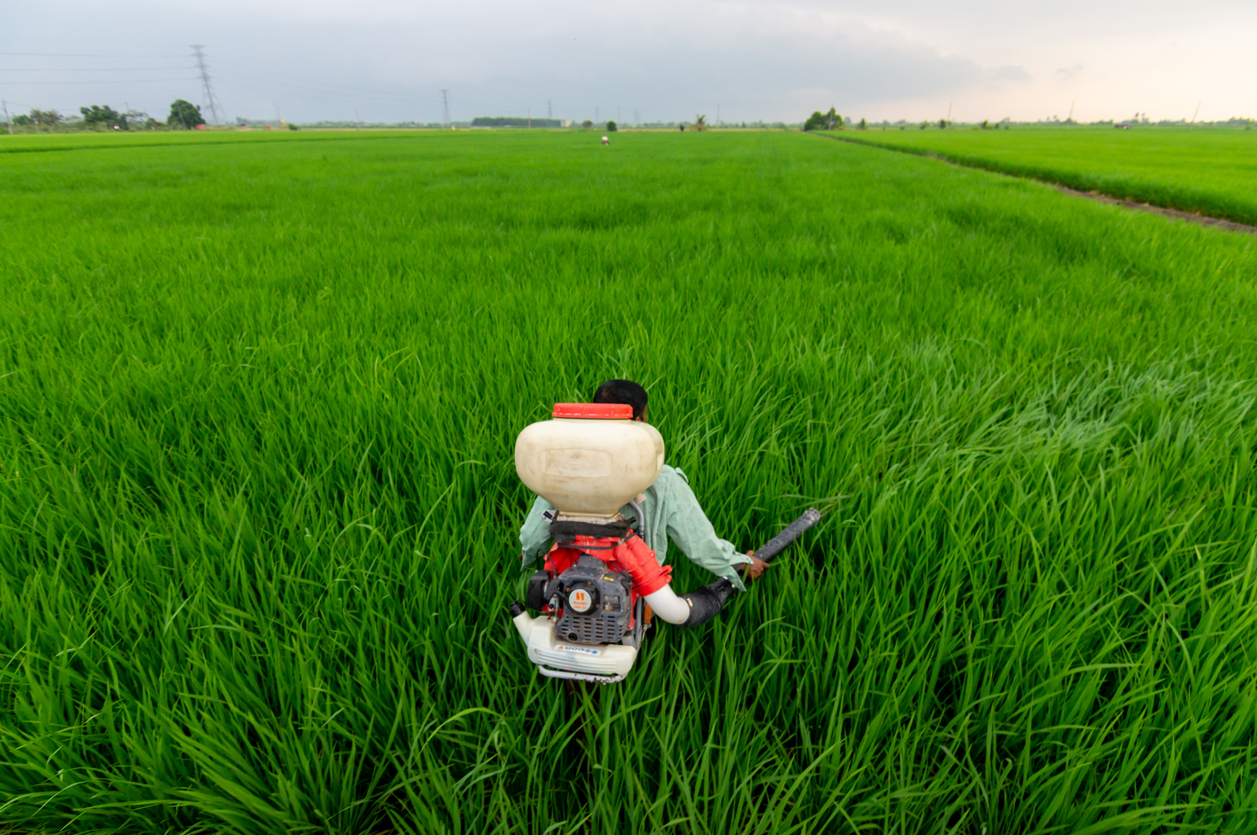
Improving Biotic Tolerance in Crop Plants through Gene Editing
January 20, 2021| |
Modern gene-editing tools such as TALENs and CRISPR-Cas9 can be used to move towards a chemical-free approach for disease resistance while saving the environment. This is according to Krishan Mohan Rai and Harpal Singh's chapter in the book Genome Engineering for Crop Improvement released this month.
Crop improvement has been one of the main targets in research due to the rapid increase of world population. Crop productivity is hugely impacted by pathogens. Pathogen-specific pesticides are commonly applied to protect plants, however, excessive use can cause damaging effects to the environment. Thus, researchers strive to improve crops by boosting their resistance to pathogens. This can be achieved through conventional breeding methods but such techniques are labor-intensive and time-consuming. Gene editing tools are used to genetically engineer crops to have better resistance against pathogens.
One of these tools is known as transcription activator-like effector nucleases or TALENs. TALENs have been successfully applied in rice to engineer resistance to Xanthomonas oryzae, the pathogen that causes bacterial blight. Scientists have also used TALENs to engineer resistance to powdery mildew in wheat.
With the use of TALENs and other gene-editing tools, improving the biotic resistance of crops through chemical-free approaches is made possible.
Read the book chapter in Wiley Online Library. Know more about TALENs from Pocket K No. 59.
| |
You might also like:
- Gene from Wild Peanut Enhances Biotic and Abiotic Resistance in Tobacco
- Genome Editing Resource
- Pocket K No. 59: Plant Breeding Innovation: TALENs
Biotech Updates is a weekly newsletter of ISAAA, a not-for-profit organization. It is distributed for free to over 22,000 subscribers worldwide to inform them about the key developments in biosciences, especially in biotechnology. Your support will help us in our mission to feed the world with knowledge. You can help by donating as little as $10.
-
See more articles:
-
News from Around the World
- FAO Promotes Innovation to Maintain Agri-Food Systems During the COVID-19 Pandemic
- Dr. Margaret Karembu Conferred Moran of the Order of the Burning Spear (MBS) by Kenyan President
- Camelina Plants Engineered to Produce Pheromones for Pest Control
- USDA APHIS Deregulates GE Insect Resistant Cotton
- Gene Editing Provides Possible Solution to Citrus Greening Disease
- USDA, FDA Sign MOU on Animal Biotechnology Regulation
- FSANZ Calls for Comment for GM Food Derived from Herbicide Tolerant Canola
- EFSA Publishes Scientific Opinion on Four-Event Stack Maize 1507 × MIR162 × MON810 × NK603
-
Research Highlights
- Scientists Propose to Use Genetic Engineering to Develop Fusarium Wilt-Resistant Bananas
-
Plant
- France: "NBTs are not GMOs"
- Improving Biotic Tolerance in Crop Plants through Gene Editing
-
Health
- Rush Scientists Develop Potential COVID-19 Drug
-
Read the latest: - Biotech Updates (February 11, 2026)
- Gene Editing Supplement (January 28, 2026)
- Gene Drive Supplement (February 22, 2023)
-
Subscribe to BU: - Share
- Tweet

